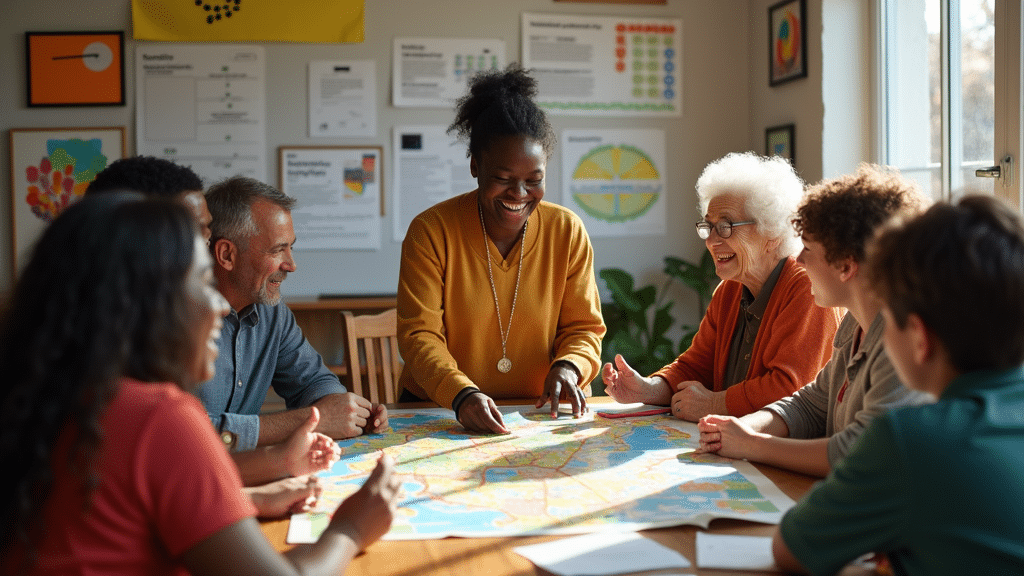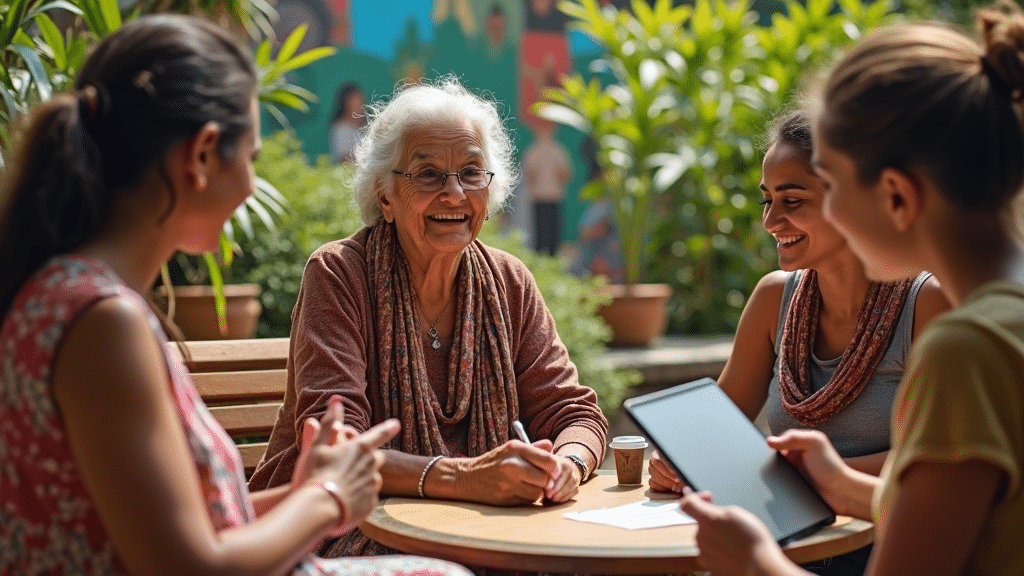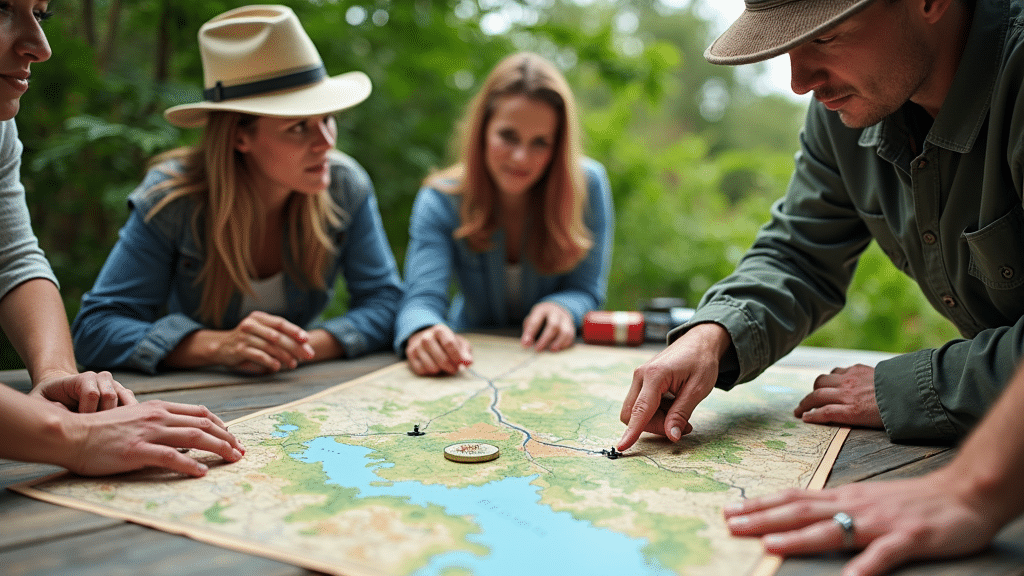How local knowledge improves project outcomes by enhancing community engagement, understanding needs, and respecting the environment in Redding.
When you want to make a project successful, using local knowledge is key. In Redding, CA, this means understanding the area, the people, and the unique challenges you might face. Local knowledge helps you make better decisions, avoid problems, and create solutions that work well for everyone involved.
For those interested in enhancing their outdoor spaces, landscaping services can play a crucial role in integrating local knowledge and community preferences into design.

Knowing what people in Redding want is important for any project. For example, if you decide to create a new park, it helps to know what families appreciate. Do kids need more play areas? Should there be picnic spots? When you ask locals, you get a clearer picture. This helps make choices that match what the community truly needs.
Talking to the people in Redding is vital. You might hold meetings or use surveys. When you listen, you learn about their wishes and concerns. For example, some may want more trees for shade, while others may need a safe walking path. This community input shapes the project to fit local desires.
Trust is a big deal in Redding. When you show you care about local opinions, you build strong relationships. People feel valued and are more likely to support the project. This trust makes it easier to work together, and it often leads to helpful feedback as the project moves along.
| Local Needs Assessment | Number of Participants | Top Request | Importance Level (1-5) |
|---|---|---|---|
| Park Development | 150 | More Play Areas | 5 |
| Community Garden | 100 | Educational Workshops | 4 |
| Trail Enhancements | 80 | Safe Walking Paths | 5 |

Every place has its own culture. In Redding, this could include a love for nature or local events. When you understand these cultural aspects, you can design projects that fit seamlessly into the community.
Redding has many local events, like the annual Redding Rodeo. By tying projects to these events, you create opportunities for involvement. For instance, planting trees during a community day can make the project feel more connected to local traditions.
Art can reflect the spirit of a community. By including local artists in your projects, you make them more special. This could mean murals or sculptures that represent Redding’s history or culture. It makes the space feel alive and cherished.

Redding has beautiful landscapes and unique wildlife. Knowing about these environmental factors is crucial for successful projects.
Every project should consider the land’s natural features. In Redding, you have hills, rivers, and lots of sunshine. This knowledge helps design structures and landscapes that work with nature, not against it. For example, building on a hillside might need different techniques than on flat ground.
Redding is home to many animals. If you plan to build near a habitat, it’s vital to know how to protect these creatures. Designing projects that respect wildlife will not only help the environment but will also enhance community support. People appreciate when nature is cared for.

Using local knowledge can save money. If you understand the area well, you might avoid issues that could cause delays or extra costs.
Redding can get hot and dry, especially in summer. Knowing this can help you choose the right materials. For example, using heat-resistant materials can reduce damage and maintenance costs over time.
Every city has its own infrastructure, like roads and utilities. Knowing where these are helps avoid digging in the wrong places. This knowledge can save time and prevent expensive repairs.
For more information on how to incorporate local elements into your designs, check out our fencing services that can enhance your community projects.
Projects that involve the community are often more successful. When people feel included, they are more likely to care about the outcome.
Creating chances for locals to help can bring people together. You might invite volunteers to plant trees or build benches. Not only does this help the project, but it also fosters community spirit.
Teaching locals about a project can help them feel connected. For instance, if you build a community garden, offer workshops on gardening. This not only benefits the project but also teaches valuable skills.
| Community Engagement Strategies | Description | Expected Outcome |
|---|---|---|
| Workshops | Educational sessions on project-specific skills | Increased community involvement |
| Volunteer Days | Events where locals can contribute directly | Enhanced community ownership |
| Feedback Surveys | Collecting community feedback regularly | Improved project designs |
Local knowledge helps you adapt. Projects often face unexpected changes, like new regulations or weather issues. Understanding the area means you can make quick adjustments.
If it rains heavily, you may need to change project timelines. Knowing the local weather patterns can help you plan for such events. You might choose to do certain tasks during different seasons or have backup plans ready.
When problems come up, local knowledge provides insight into quick solutions. For example, if a road closure happens, knowing alternative routes can keep the project on track.
In Redding, there are many success stories where local knowledge made a difference.
The development of community parks in Redding often involves local feedback. Citizens share their ideas, which lead to designs that fit their needs. More playgrounds and open spaces have been built based on community input. This helps the parks become favorite spots for families.
The project along the Sacramento River showcases the importance of local knowledge. The design took into account the environmental impact on wildlife and the need for recreational spots. By listening to locals, the project became a beloved area for walking, biking, and enjoying nature.
Looking ahead, projects in Redding can benefit from even more local involvement.
As local projects continue, encouraging community voices should remain a priority. This can lead to even more creative solutions that reflect the spirit of Redding.
More educational programs can engage the community. Teaching about sustainability or gardening can create a caring attitude toward local projects.
In summary, local knowledge is a powerful tool for improving project outcomes. It helps understand community needs, respects the environment, and builds trust. Engaging with locals creates a sense of ownership and pride. As Redding continues to grow, using local knowledge will be essential for future successes.
By focusing on community input and understanding the environment, you set the stage for projects that truly enhance the beauty and spirit of Redding. The more you listen and adapt, the better your outcomes will be. This local knowledge not only benefits you but also helps create a brighter future for everyone in Redding.